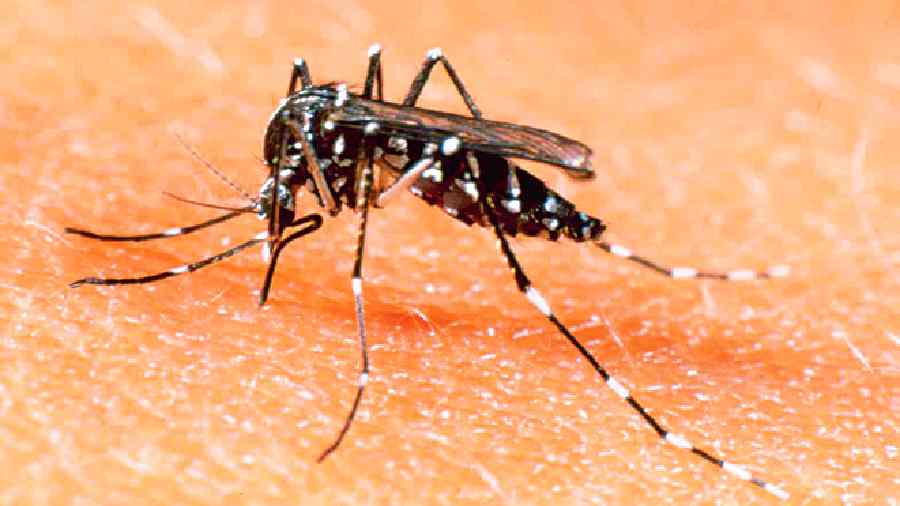At least nine recent cases of dengue have been reported from Salt Lake and Rajarhat, prompting the Bidhannagar Municipal Corporation to draw up a plan to ensure that the number of new cases do not shoot up drastically.
Two cases have also surfaced from New Town, a senior official of the state health department said.
According to an official of the corporation’s health department, an anti-dengue drive will start from Friday that will include cluster cleaning and GPS-tracked door-to-door survey among other measures.
“We will first conduct a cluster cleaning. That will include clearing out places with high garbage density such as areas near compactor stations, empty plots and the like. After this is done, the civic body will start a door-to-door survey where health workers will visit homes to enquire if there is anyone suffering from dengue or dengue-like symptoms,” he said. “The data collected by the teams will be fed on an app that is enabled with GPS-tracking.
“All our teams will carry smartphones that will have this pre-installed app. Since the app will automatically record the location we will be able to get an idea about cluster zones as well,” said the official.
The survey teams will check for garbage and traces of accumulated rainwater at homes and common areas in Salt Lane and parts of Rajarhat.
The civic body is also planning to send teams to building complexes, high rises and government buildings to check if there are places where rainwater or garbage has accumulated.
The dengue-causing Aedes Aegypti mosquito can breed in a coin-sized blob of water and public health experts have warned that intermittent spells of rain would create the perfect conditions for these mosquitoes to breed.
Banibrata Banerjee, the mayoral council member in charge of health, said that they wanted to focus on clean-up drives first to ensure that water does not stay accumulated for mosquitoes to breed. “We will start the drive from July 1 and conduct larvae detection drives soon,” he said.
A policeman from the Lake Town traffic guard as well as a civic police volunteer are down with dengue.
Areas alongside canals like Kestopur and the Eastern Drainage Canal, including several blocks like EE, AE, AD, AG and AH, are considered to be high-risk areas apart from Kestopur, Baguiati and Arjunpur.
